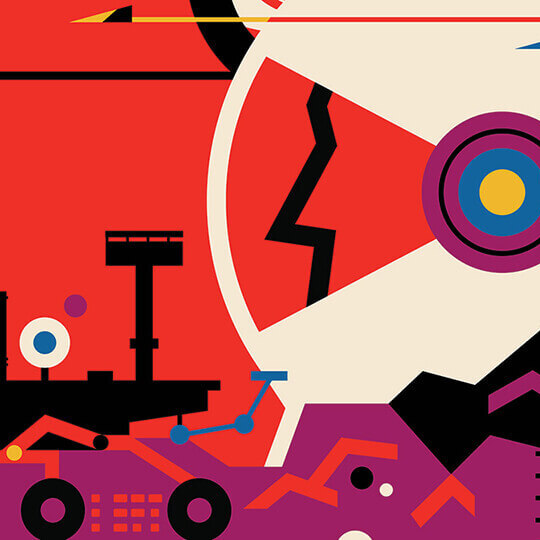
Side Projects Q&A and Videos
About Side Projects
How to best split your time between work and side projects?
Entry-Level Software Engineer [SEP] at JPMorgan Chase
For people who work on side projects: I was wondering what is your system when it comes to coding at work and then coding after work? How do you divide your time effectively between the two?
Show more
Posted 3 years ago
860 Views
3 Comments
Best way to self-study in order to upskill?
Senior Software Engineer at Taro Community
What's the best way to upskill oneself in emerging fields?
for example, what would be the most effective and easiest way of upskilling in Data & AI projects in absence of any direct work opportunities that involve those fields?
Show more
Posted 7 months ago
453 Views
4 Comments
Explore Jobs By LevelEntry-Level Software Engineer JobsMid-Level Software Engineer JobsSenior Software Engineer JobsStaff Software Engineer Jobs
Explore TrendingLayoffsPerformance Improvement PlanSystem DesignInterpersonal CommunicationTech Lead
Explore Job InternshipsSoftware Engineering InternshipsGoogle InternshipsMeta InternshipsAmazon InternshipsApple InternshipsTesla InternshipsMicrosoft Internships
![Break Into Tech And Become A Software Engineer [Part 7] - The 6 Steps For A Great Side Project](/_next/image/?url=https%3A%2F%2Ffirebasestorage.googleapis.com%2Fv0%2Fb%2Ftech-career-growth.appspot.com%2Fo%2Flesson_thumbnails%252F1731293962-image.jpg%3Falt%3Dmedia%26token%3D04dfc241-1dfd-45c2-8e21-3467c9851a63&w=1920&q=75)
![Break Into Tech And Become A Software Engineer [Part 18] - Work For Free](/_next/image/?url=https%3A%2F%2Ffirebasestorage.googleapis.com%2Fv0%2Fb%2Ftech-career-growth.appspot.com%2Fo%2Flesson_thumbnails%252F1731294115-image.jpg%3Falt%3Dmedia%26token%3D5835e1c0-34f8-46a4-8128-437b17a5e2aa&w=1920&q=75)
![Come Up With 500k+ User Project Ideas [Part 8] - The 3 Levels Of Tech](/_next/image/?url=https%3A%2F%2Ffirebasestorage.googleapis.com%2Fv0%2Fb%2Ftech-career-growth.appspot.com%2Fo%2Flesson_thumbnails%252F1732666989-image.jpg%3Falt%3Dmedia%26token%3D945d2322-b7df-4ea2-8619-0989fc376195&w=1920&q=75)

![Come Up With 500k+ User Project Ideas [Part 7] - The Alex Formula](/_next/image/?url=https%3A%2F%2Ffirebasestorage.googleapis.com%2Fv0%2Fb%2Ftech-career-growth.appspot.com%2Fo%2Flesson_thumbnails%252F1732666604-image.jpg%3Falt%3Dmedia%26token%3Dfd6afa8d-6bc6-4e1e-b8c4-9716688a06b7&w=1920&q=75)

![Break Into Tech And Become A Software Engineer [Part 10] - Why It's Better To Share](/_next/image/?url=https%3A%2F%2Ffirebasestorage.googleapis.com%2Fv0%2Fb%2Ftech-career-growth.appspot.com%2Fo%2Flesson_thumbnails%252F1731293996-image.jpg%3Falt%3Dmedia%26token%3D235f71a8-ba74-4b28-ba21-3003661493fd&w=1920&q=75)
![Come Up With 500k+ User Project Ideas [Part 5] - Tech Stack Rankings](/_next/image/?url=https%3A%2F%2Ffirebasestorage.googleapis.com%2Fv0%2Fb%2Ftech-career-growth.appspot.com%2Fo%2Flesson_thumbnails%252F1732665375-image.jpg%3Falt%3Dmedia%26token%3Dcdcb8ee5-de09-470d-aff7-c07d4c4a77e8&w=1920&q=75)

![Come Up With 500k+ User Project Ideas [Part 6] - Your Idea Is Worthless (For Now)](/_next/image/?url=https%3A%2F%2Ffirebasestorage.googleapis.com%2Fv0%2Fb%2Ftech-career-growth.appspot.com%2Fo%2Flesson_thumbnails%252F1732665563-image.jpg%3Falt%3Dmedia%26token%3D98f32f5b-a6d0-425c-bd75-a974793f4fb7&w=1920&q=75)
![Come Up With 500k+ User Project Ideas [Part 9] - Single Player vs. Multiplayer](/_next/image/?url=https%3A%2F%2Ffirebasestorage.googleapis.com%2Fv0%2Fb%2Ftech-career-growth.appspot.com%2Fo%2Flesson_thumbnails%252F1732667416-image.jpg%3Falt%3Dmedia%26token%3D7c5417b2-9fed-42be-85f5-c108edaa3ba5&w=1920&q=75)
![Come Up With 500k+ User Project Ideas [Part 18] - Go Deeper: Follow Through](/_next/image/?url=https%3A%2F%2Ffirebasestorage.googleapis.com%2Fv0%2Fb%2Ftech-career-growth.appspot.com%2Fo%2Flesson_thumbnails%252F1732664538-image.jpg%3Falt%3Dmedia%26token%3D93001318-ba62-4c1d-af46-58222130e888&w=1920&q=75)